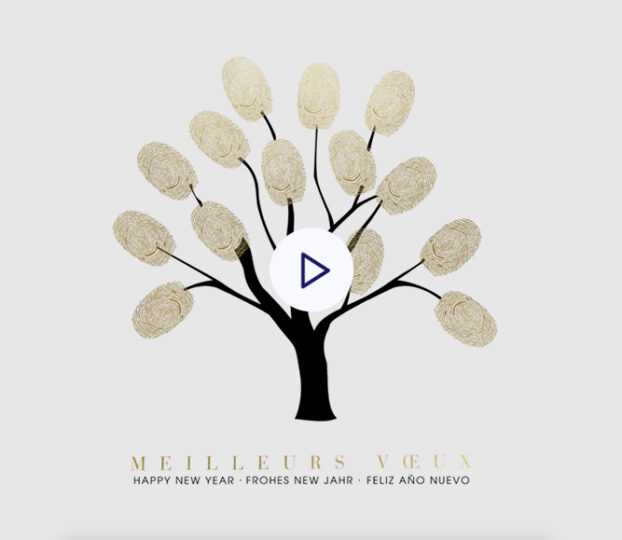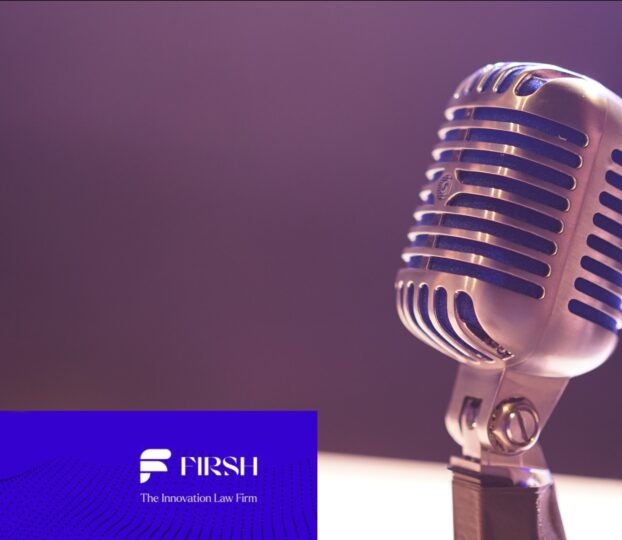
Newsletter n°11 (NOVEMBER 2024)

✨ARTIFICIAL INTELLIGENCE✨
➡️Deepfakes and freedom of expression : California deepfakes law rejected by federal judge
On September 17, 2024, California Governor Gavin Newsom signed into law “AB2839”, a bill aimed at curbing malicious deepfakes. Among other things, it restricted the use of deepfakes for disinformation purposes and prohibited the “distribution of materially misleading audio or visual media of a candidate” 120 days before an election and in some cases 60 days after the election.
On October 7, 2024, Federal Judge John A. Mendez blocked the application of California law AB 2839, through the mechanism of a preliminary injunction, ruling that it violated the First Amendment of the US Constitution, which places freedom of expression at the top of the hierarchy of American norms.
Indeed, the judge described the law as a “blunt instrument” that impedes humor and “unconstitutionally stifles the free and unfettered exchange of ideas”. It also measured its detrimental impact on humorous expression in that, being too broad, the law risked restricting legitimate forms of expression, including parody and satire. Finally, through an analysis of the proportionality of the interests at stake, the judge ruled that it acted as a “hammer rather than a scalpel”, by not precisely targeting the problems the legislator was seeking to resolve.
Despite the risks posed by deepfakes and artificial intelligence in the context of elections, AB2839 will not come into force.
FIRSH expert opinion: In principle, the use of deepfakes is legal when it constitutes parody or humorous satire, in the name of freedom of expression, a freedom that is constitutionally protected in democracies. But freedom of expression is not absolute. French regulations, as well as those in other countries, are in the process of circumscribing the use of malicious deepfakes, particularly in the context of electoral campaigns (FIRSH will soon be publishing its White Paper on the use of deepfakes).
👉 More information https://leginfo.legislature.ca.gov/faces/billTextClient.xhtml?bill_id=202320240AB2839
✨NEW TECHNOLOGIES✨
➡️ SREN law: CNIL approves ARCOM’s draft guidelines for age verification systems on pornographic sites
The law to secure and regulate the digital space (named “SREN”) of May 21, 2024 gave the ARCOM (the french Regulatory Authority for Audiovisual and Digital Communication) the power to ensure that pornographic content was not accessible to minors.
To this end, ARCOM was to publish a repository determining the minimum technical requirements applicable to age verification systems.
ARCOM’s guidelines, which it submitted to the CNIL for its opinion, include the following:
-
General considerations regarding the reliability of the age verification system
-
Strong data protection and privacy requirements
Two levels of protection are proposed:
-
Simple: a minimum set of requirements applicable to all age verification systems
-
Double anonymity: additional requirements that each targeted communication service must offer users.
The existence of these two levels means that users can make the choice that suits them best: either a less protective system but easier to use, or a more protective system with double anonymity.
On September 26, 2024, the CNIL approved ARCOM’s project and made a number of recommendations.
In particular, the CNIL:
-
Stresses the need for identity document checks to be carried out by an independent third party, the aim being to prevent the collection of data directly by pornographic sites from presenting a risk to the individual, in particular by inferring or assuming his or her sexual orientation.
-
Recommends that minors themselves be able to provide proof of their majority, in order to avoid excessive data collection.
-
Recalls that age control is only one tool among others, and stresses the importance of parental control
-
Recommends raising awareness of digital uses and education.
ARCOM’s guidelines have been in force since October 9, 2024, and publishers of adult entertainment sites will have three months to comply. If they fail to do so, ARCOM may give formal notice to the publishers to comply, and in the event of persistent non-compliance, after consulting the CNIL, it may impose a financial penalty in accordance with the procedure laid down in article 42-7 of law no. 86-1067 of September 30, 1986.
👉 More information : Vérification de l’âge en ligne : la CNIL a rendu son avis sur le référentiel de l’Arcom concernant l’accès aux sites pornographiques | CNIL
✨DATA ✨
➡️ Higher education institution fined 20,000 euros in administrative fines for non-compliance with RGPD
A higher education establishment was served with a formal notice by the CNIL at the end of 2022 for non-compliance with the RGPD. This formal notice was issued following inspections by CNIL agents concerning the management of students’ administrative and pedagogical data.
The breaches concerned :
-
data retention periods
-
insufficient information for students
-
lack of compliant contracts with subcontractors
-
security measures considered insufficient (particularly with regard to passwords).
Using its simplified procedure, the CNIL imposed an administrative fine of 20,000 euros on the private higher education establishment for failure to comply with the following requirements:
-
data minimization
-
data retention periods
-
lack of data security
FIRSH expert opinion: Entities, both public and private, must comply with RGPD obligations as soon as they process personal data. Firsh can help you comply with the RGPD!
👉 More information : Décision CNIL, procédure simplifiée, 25 juill. 2024
✨INTELLECTUAL PROPERTY✨
➡️Trademark: Infringement of the Olympic trademarks and properties of the Paris 2024 Olympic Games
A Chinese company, former official partner of the Beijing 2022 Olympic Games, implemented a marketing operation on buses circulating in the streets of Paris in June 2024. As part of this operation, it reproduced on the buses, without authorization, the five-colored Olympic rings constituting an EU trademark belonging to the International Olympic Committee (IOC). The company also used two figurative signs that were very similar to the trademarks owned by the IOC and the Organizing Committee for the Olympic and Paralympic Games (OCOG) and related to identical goods and services.
In addition, the company had also published posters on its social networks imitating the visual codes of the official Paris 2024 Olympic Games poster, as well as publications featuring in particular: a drawing of Marianne, the mascots, the Olympic rings and the words “Paris 2024”.
Seeking an amicable solution, the Chinese National Olympic Committee (CNOC), together with the IOC, sent two letters of formal notice to the Chinese company, reminding it of the Olympic rights and properties belonging to the IOC and asking it to cease any unauthorized use of the signs. These letters had no effect.
The IOC and the OCOG then summoned the Chinese company to appear in summary proceedings before the Paris judicial court on August 6, 2024, on the grounds of trademark infringement.
On August 8, 2024, the Paris Court of First Instance ruled that there was a likelihood of confusion between the signs and that the likelihood of infringement had been established. In addition, the judge ruled that the company had also demonstrated parasitism by placing itself in the wake of the Paris 2024 Olympic Games in order to benefit from the OCOG’s notoriety.
The judge therefore ordered the Chinese company to pay 50,000 euros to the IOC and 50,000 euros to the OCOG. Finally, the judge prohibits the Chinese company from using the signs, under a fine of 20,000 euros per day of delay, and orders it, under a fine of 20,000 euros per infringement, to withdraw all communications, advertising or products, including mascots, reproducing the disputed signs referred to in the decision, in France or accessible from French territory.
FIRSH expert opinion: It is essential to check the availability of signs before reproducing them in commercial operations. In addition, if the sign is found to be unavailable, contact the trademark owner to draw up a licensing or assignment agreement. Firsh can help you contractualize your intellectual property projects!
👉 Read the decision : Tribunal judiciaire de Paris, Service des référés, 08 août 2024, 24/55463
➡️Copyright and educational content
Lyon judicial court upholds infringement of a training company’s educational content
In this case, the University of Lyon initiated a seizure-infringement procedure in 2019 at the headquarters of a training company. The seizure revealed that copies of transcripts of University lectures and an audio recording of a lecturer’s course had been transferred by an individual to the private training company, and that these reproductions had then been resold to the private training company’s students.
The university and the lecturers sued the company and the individual who had transferred the course content for copyright infringement.
In a ruling dated September 10, 2024, the Lyon judicial court recognized that the training company had committed copyright infringement by reproducing, without authorization, the courses given at the University. The judges upheld the originality of the teaching content and consequently its protection by copyright.
The judge ordered the training company and the individual who had transmitted the content to pay the symbolic sum of €1 to the authors as compensation for the infringement caused to their economic and moral rights by the acts of counterfeiting. The same symbolic sum is demanded from the University, this time as compensation for unfair competition.
In addition, the judge ordered the training company and the individual to cease all use, for whatever purpose, of the handouts deemed to be infringing, subject to a provisional fine of €1,000 per infringement as from the date of notification of the judgment.
In view of the absence of damages and by virtue of exemplarity for an entire business sector, the judgment is also required to be published in two newspapers or magazines of the choice of one of the plaintiffs, at the exclusive and advanced expense of the company and the individual, as well as on the University website, for a period of three months.
FIRSH expert opinion: If you wish to commercialize pre-existing educational content, it is important to ensure that its use is legally regulated. In this case, it was necessary to obtain the authorization of the rights holders, and, if necessary, to proceed with the contractualization of the project. Firsh can help you contractualize your intellectual property projects!
👉 Read the decision : Tribunal judiciaire Lyon, 10 sept. 2024 – n°19/04490
Lyon court upholds film school’s infringement of a student’s creation
In this case, a film school student had made a short film during his training in 2011, which he then published on his personal Vimeo page in 2013. In 2019, he discovered that an image from his film had been extracted and modified by his film school for use on all its media, including promotional material.
The author then alerted the school, which offered to buy the rights to use the photo extracted from the film. He offered to settle the dispute out of court by paying a lump sum in return for a 10-year worldwide transfer of his copyright.
Despite his proposal for an out-of-court settlement, the school continued to use the image.
The author then served formal notice on the school to pay him the sum of €9,720 (incl. VAT) by letter dated April 5, 2019. This request remained without effect.
On June 5, 2019, the author then summoned the film school before the Lyon judicial court for copyright infringement.
With regard to authorization of use, the defendant company relied on the provisions of the student guide, under which it is stated that students grant the school “the use of their work for exclusively educational or non-commercial purposes, to promote the establishment to the public.” The judge ruled that the provisions of the guide did not constitute a transfer of the author’s rights, and consequently could not authorize use.
On April 30, 2024, the Lyon court ruled that the film school’s reproduction of the work constituted copyright infringement. By using, modifying and publishing the former student’s work, the school had infringed his economic and moral rights.
The judge ordered the school to pay the author 20,741 euros for infringement of his economic rights, and 4,000 euros for infringement of his moral rights. In addition, the judge ordered the school to cease all acts of infringement and to remove the image from all its media, subject to a provisional three-month fine of 50 euros per day of delay after three months from the date of notification of this decision.
FIRSH expert opinion: the transfer of copyright is subject to strict formal rules. In this case, the provisions of the school guide are not sufficient to establish the transfer of rights. Firsh can help you contractualize your intellectual property projects!
👉 Read the decision : Tribunal judiciaire Lyon, 30 avr. 2024, n° 19/04753
✨ « FIRSH » NEWS ✨
Find out more about Firsh’s contributions to the advancement of law and innovation:
➡️ Our founding partner, Claire Poirson, took part in the ITechLaw Association European Conference in Munich from October 31 to November 1. Together with Paulina Maślak-Stępnikowska of WKB Lawyers, she moderated a roundtable discussion: “Everything in Moderation: Online Content Moderation & Free Speech.” Three times a year, ITechLaw brings together over 500 expert lawyers from all over the world to discuss major Tech issues such as deepfakes, fake news and cybersecurity. This conference was an opportunity for the founding partner to introduce Firsh to the ITechLaw colleagues with whom she had previously worked!
👉 More information on ITechLaw Association : About Us | ITechLaw
➡️ Our founding partner, Claire Poirson, took part in Agir pour l’Égalité – Think & Do Tank Marie Claire, whose theme this year was “More women in the artificial intelligence and tech professions”. Claire Poirson spoke in particular on the subject of gender bias in AI: how to detect it, how to avoid it, how to deal with it and why?
👉 More information on Agir pour l’Égalité – Think & Do Tank Marie Claire : Think and DoTank : Agir pour l’égalité – Marie Claire
➡️ In october, Firsh assisted clients with the following projects::
-
pre-litigation in the context of trademark and copyright infringement, parasitism and consumer deception for an electric car brand in the automotive sector;
-
observations in response to a provisional refusal by the INPI to register a trademark deemed descriptive;
-
negotiation of commercial contracts for a luxury brand in the fashion industry;
-
negotiation of a software license agreement for traceability of origin (cocoa, coffee)
-
pre-litigation of breach of commercial relations in the fashion events sector.
📢 To follow us on LinkedIn and receive our newsletter, click here: https://www.linkedin.com/company/firshlaw.
📢 There is no direct collection of your personal data and therefore no emailing from FIRSH !


